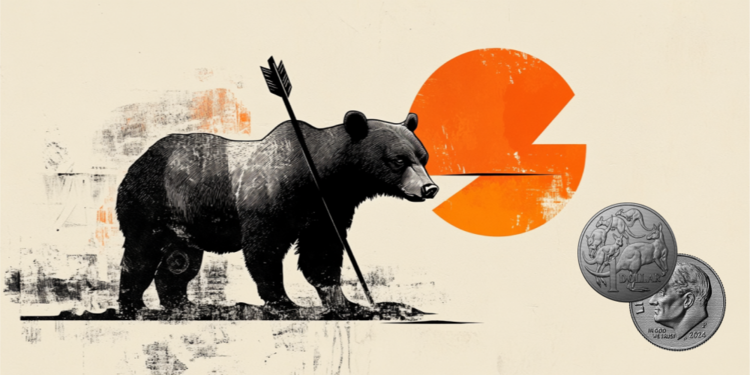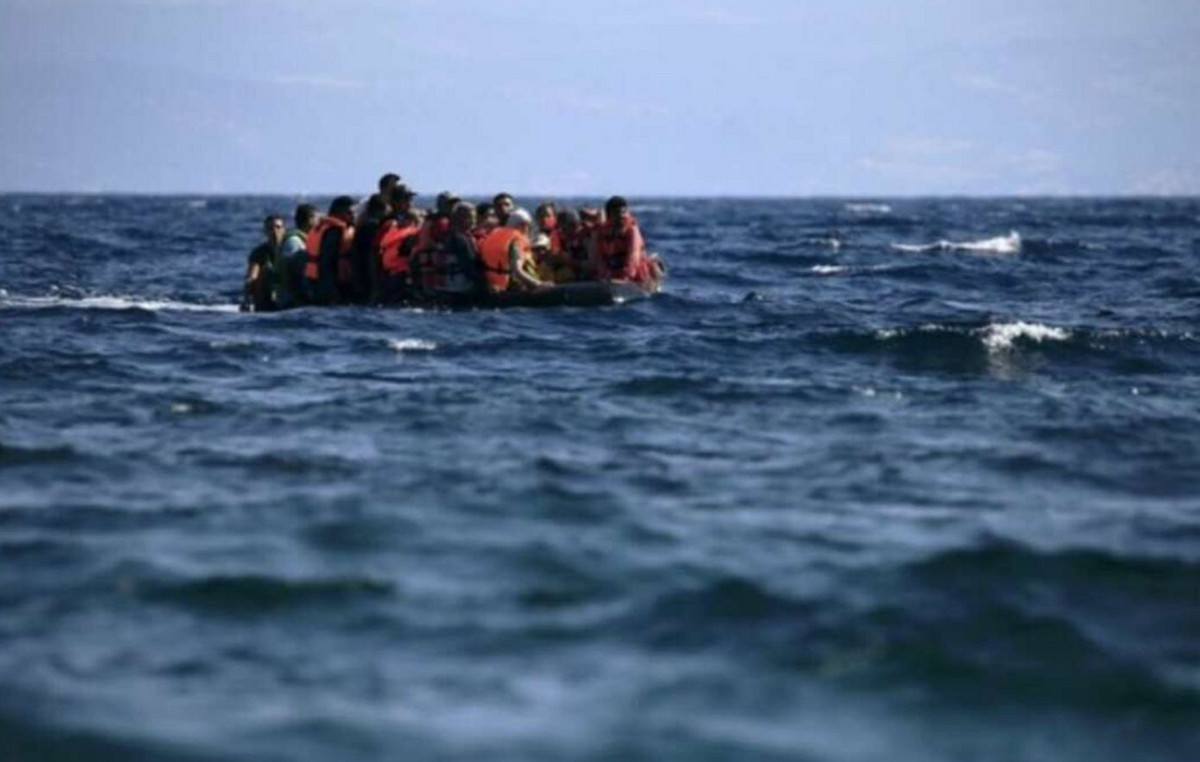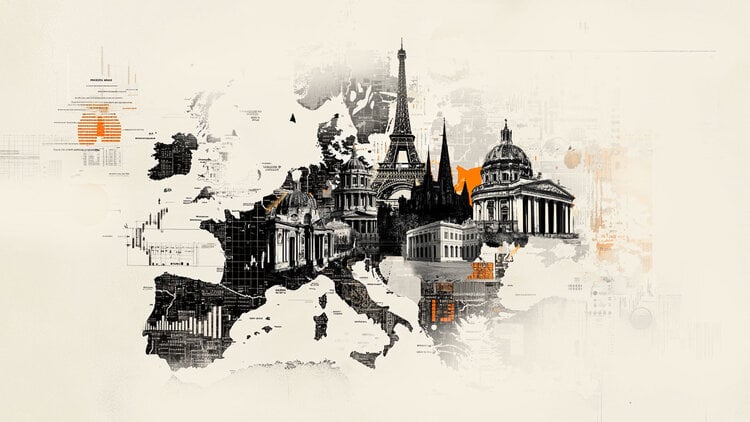It seems like a lifetime ago. Emmanuel Macron took the stage in 2017, with a boyish stride and breathless excitement in his victory speech: the grand entrance to his presidency.
He promised to be France’s centrist hope after decades of division, the great reformer who would propel the country to the forefront of global affairs. Now he is facing what will surely be his true legacy: Mr. Macron has opened the door to the far right in France.
After a crushing defeat in the European Parliament election in May, his decision to call an early election proved to be, at least partly, a shot in the foot.
In a surprise result, the New Popular Front (NFP), a collection of left-wing parties, won 182 seats in the National Assembly, short of a majority but ahead of both Macron’s centrist bloc and the far right.
The far-right bloc was widely expected to win first, but a nationwide effort to contain it, with left-wing and centrist candidates withdrawing to concentrate votes against it, succeeded.
A relief for Macron, who must be saved from forced cooperation with a far-right prime minister. But the political chaos of a parliament without an absolute majority awaits: a stark contrast to the landslide victory he secured in 2017.
Bold is how many summed up his meteoric rise to the French presidency; arrogant is how many now see his Icarus-like fall. Macron has demolished the architecture of French politics in his meteoric rise to the Elysee Palace.
Creating a new centrist party from the political right and left, his landslide victory in 2017 – after only a short stint as a government minister – set him up to stifle the political landscape, trying to satisfy anti-immigration policies with fiscally lax environmental and social protections.

With Macron dominating the center, political oxygen has been sucked out of the extremes. This has resulted in a polarization of policy proposals — from the neutralization of France’s sacred secularism by the left to the persecution of “Islamist ideologies” by the right — and a deep and painful division in French society.
His political star shone brightly, but it is already collapsing in on itself. This is an end of his own making.
Love or hate relationship
Never afraid to chart a difficult course, early in his presidency he plunged into his reform agenda: cutting taxes for the rich and raising diesel prices. The proposals were typically Macronian: fiscally sound, business-friendly and poorly publicized.
The public reaction has also become classic for Macron: an outpouring of outrage on the streets of France.
The diesel tax sparked the worst protests France had seen in decades. The “yellow vest” movement swept the country in 2018, bringing thousands of ordinary French people onto the streets, facing heavy policing and successfully holding the country’s political agenda hostage.
“I don’t think any country can move forward if it doesn’t also listen to this part of the legitimate anger of our people,” he said, a few months after the protests began. “I think they are reconcilable and that’s what we’re doing.”

Police officers stand next to a fire during a protest against pension reform in France / 11/02/2023 REUTERS/Yves HermanIt was the longest street protest in 50 years, but Macron eventually listened to the anger of the yellow vests, or yellow vests.
For a former banker turned economy minister with little relatable experience of everyday French life, his solution was an audacious public relations coup: a nationwide tour of towns, a chance to listen and be heard. A man accused of being an aloof politician offered a humble face.
Political fighter
Then came Covid-19. Macron adopted his preferred all-or-nothing approach, with one of Europe’s strictest lockdown regimes, in repeated waves, and a strict vaccination protocol.
“We are at war,” he told the nation in March 2020. “Day and night, nothing should distract us from that.”
He adopted a similar philosophy in the wake of the pandemic, as the global economy struggled to recover and tensions over Ukraine threatened to strangle economic growth.
Macron spent big, shielding French businesses and consumers from the worst of the energy price spikes, just months after massive post-Covid spending. By 2024, France was running one of the eurozone’s biggest deficits, but the former economy minister got what he paid for.
French growth is projected to be 0.7% in 2024 and gain momentum next year, showing remarkable resilience since the pandemic. Inflation is also expected to fall significantly.
Macron and his supporters point to his economic record as reason enough to vote for him. But the French are rarely so generous to their sitting presidents – gratitude is in short supply.

Today, Macron’s approval ratings are at 30%, down from nearly 50% when he took office, but his disapproval ratings (now at 65%) have not fallen below 50% since his first months in office, according to an Ipsos-Le Point poll.
The French love to hate their politicians, and Macron is no different. The country’s constitutional two-term limit means Macron cannot run for president again in 2027.
A lawmaker from Macron’s party said public disappointment with the French president stemmed from how publicly invested he was in the country’s direction, making clear that his four prime ministers were strictly following his lead.
“He was ultimately very active in his two five-year terms, unlike other presidents who would sit in the background and let their prime minister take the hits,” said one member of parliament, requesting anonymity to speak candidly. “We felt that (the prime ministers) were very dependent on him,” he added.
Under pressure at home, he enjoyed playing the statesman, whether rallying forces behind the European project or confronting combative counterparts, be they Putin or Trump. He was a campaigner for European military and industrial sovereignty against American patronage long before the war in Ukraine made it fashionable.
And he has been a crucial ally for Kiev in the face of the 2022 Russian invasion, leading the supply of light tanks, then long-range missiles and French-made fighter jets, while keeping European allies on the same page about Ukraine.
In the early days of the invasion, he was criticized for his efforts with Putin – later revealed to be at Kiev’s behest. But he later sought to outmaneuver Putin, raising the issue of sending NATO troops and cementing the West’s unwavering support for Ukraine.

Warnings unheeded?
With the (arguably arrogant) self-confidence that has defined his image, Macron has issued repeated warnings about the threat from the far right.
“I do not want to belong to a generation of sleepwalkers, I do not want to belong to a generation that has forgotten its own past or that refuses to see the torments of its own present,” he told the European Parliament in 2018.
Finally, after years of gradual advances by the far right, the 2024 European Parliament elections saw its centrist politics submerged by a call from the far right.
As Marine Le Pen and her lieutenant Jordan Bardella of the Rassemblement National emphasize, many French voters – struggling with economic pressures and anti-immigration narratives – felt ignored or unheard, those whom in Macron’s own inaugural address he had called “French men and women who feel forgotten by this vast global movement.”
Unheard and ignored was how many working-class French citizens felt in 2023, when anger over a rise in the retirement age sparked months of protests. It was a Gordian knot of Macron’s own making.
Solving the fatal pension financing dilemma was a sound policy on paper, but it was mismanaged and mis-sold to the public. It was ultimately enacted without the consent of lawmakers: the government ruling by decree.

Stripped of his parliamentary majority in 2022 and stung by a rejection of his vision in the 2024 European elections, he has staked his faith in the French electorate.
“It is above all an act of trust,” Macron said as he called early parliamentary elections, “in the ability of the French people to make the fairest decision.”
Many in France wondered why. Among lawmakers in Macron’s party, there was “a lot of misunderstanding,” the lawmaker told CNN . Grappling with unfavorable parliamentary arithmetic, “this was going to happen anyway,” the lawmaker said. “I think what made it harder for me compared to others is that the person who pressed the button was the president, so obviously it’s his fault.”
The result was effectively a referendum on Macron himself. His centrist Ensemble alliance now holds 163 seats, far fewer than the 245 seats it won in 2022, and he presents himself as a weakened figure abroad and at home.
The far right argues that it poses no threat to France. “We pose no danger, other than making (Macron) lose power,” Marine Le Pen told CNN last week.
But there is a real fear of a return to power for identity politics in many parts of today’s culturally rich but complicated France. Now that the far right has seized legislative power — and is targeting the Élysée Palace in 2027 — the threat posed by the Rassemblement National’s victories is not limited to Macron’s ego.
For countless communities in France – French and immigrant – the legacy of one man’s gamble and the uncertainty that is his legacy will exact a much higher price.
Source: CNN Brasil
Bruce Belcher is a seasoned author with over 5 years of experience in world news. He writes for online news websites and provides in-depth analysis on the world stock market. Bruce is known for his insightful perspectives and commitment to keeping the public informed.







